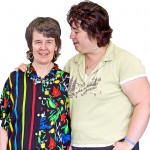
In 2006, the Department of Health produced a report called ‘Let Me I’m a Researcher’, which was designed to inform the debate about best practice in working with people with disabilities to co-produce topic areas, aims, objectives and approaches in research that involved them.
Involving people with learning disabilities in the production and delivery of research projects has become more common, but learning about the best way to achieve this continues.
The researchers in this study were reflecting on their experiences of running a project on adult protection practice in Scotland.
A key feature of the work they draw attention to is to enable sufficient time to identify those who want to be involve and to build this in to the timescales for the project. They spent some time at the outset providing information in a variety of ways about the policy on adult protection in Scotland, and listening to what the people who were affected wanted to explore in the project.
A key issue in working with researchers with learning disabilities, and indeed in any research project, is to be very clear about the terminology used and the meanings of key words. The research team spent a good deal of time understanding the key words used in adult protection, for example ‘risk’ and ‘abuse’.
This process enabled them to consider in some detail how words are used in different ways in different settings, and in particular how the words used were part of relating experience in stories, and how this impacted on the way the research would be presented to policy makers and service providers. The literature review was carried by researchers with and without learning disabilities, and the authors reflect on how this helped them to get a better understanding of how words are used as tools.
Interestingly, the researchers decided they would not ask people about their own stories for the project, but would act out stories which highlighted the issues they wanted to know about in a process known as forum theatre. They found that this meant that people were much more in control of what they wanted to share and the ways in which they wanted to share it.
The authors conclude from these reflections that
those who make, carry out and research services should consider using a wider range of tools than just words to help people have a say in how work to help people is done.
Finding the words to work together: developing a research design to explore risk and adult protection in co-produced research, Brookes, I et al., in British Journal of Learning Disabilities, 40: 143–151.
